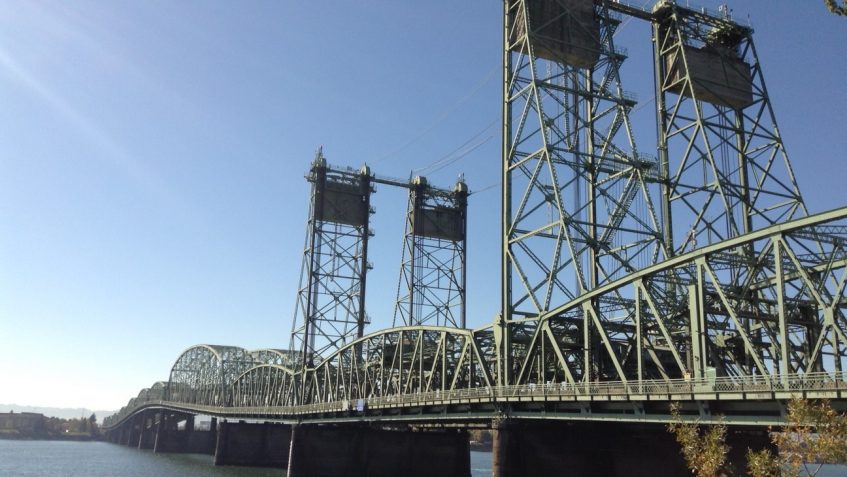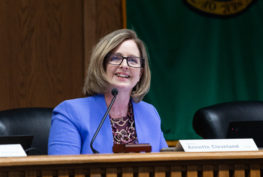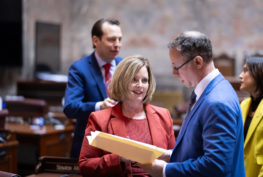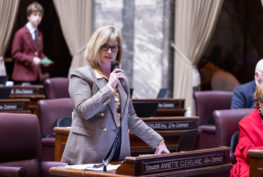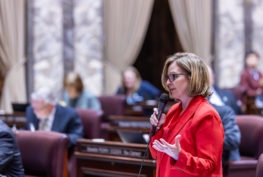Sen. Annette Cleveland, D-Vancouver, released this statement today regarding the failure of the Legislature to fund the Columbia River Crossing as part of a transportation revenue package:
"This is a sad day for our district and our state. The Columbia River Crossing project is the single most important investment we can make for our future — and key lawmakers are refusing to make it.
“At a time when Vancouver and our surrounding region suffer from one of the highest unemployment rates in the state, the CRC project would have provided more than 20,000 jobs through project design and construction. By 2030, 4,200 additional regional and state jobs would have been created, adding $231 million in additional wages to our local economy. Not anymore.
“I was hopeful that my colleagues across the aisle would choose to be partners in the prosperity of our region and our state, not obstructionists. I consider the failure to address our aging infrastructure as nothing less than a dereliction of our duty as legislators. Our constituents expect us to roll up our sleeves and make hard decisions, not stick our heads in the sand while every new day risks the collapse of a functionally obsolete bridge. I would have thought the CRC opponents would have taken stark notice of the collapse of the Skagit River Bridge in Mt. Vernon earlier this year, but apparently that wake up call was lost on them.
“As many of you know, I work in health care and I also view this project as a health and safety issue for our community. The heavy traffic congestion leads to accidents every day and we see the results of those accidents in the emergency rooms of our hospitals. Not only that, the only level-one trauma care in our region is available in Portland. If a loved one needs trauma care, and the bridge is backed up with traffic, the only option is helicopter transport; this is expensive and not always possible if weather conditions prevent flight, or when there are multiple trauma cases at one time. The human costs of further delay of this project are as unacceptable as the economic costs of delay.
“Our community and state is what it is today because of people who came before us who made the right decisions to invest in our infrastructure. We must continue that legacy for the next generation.”
